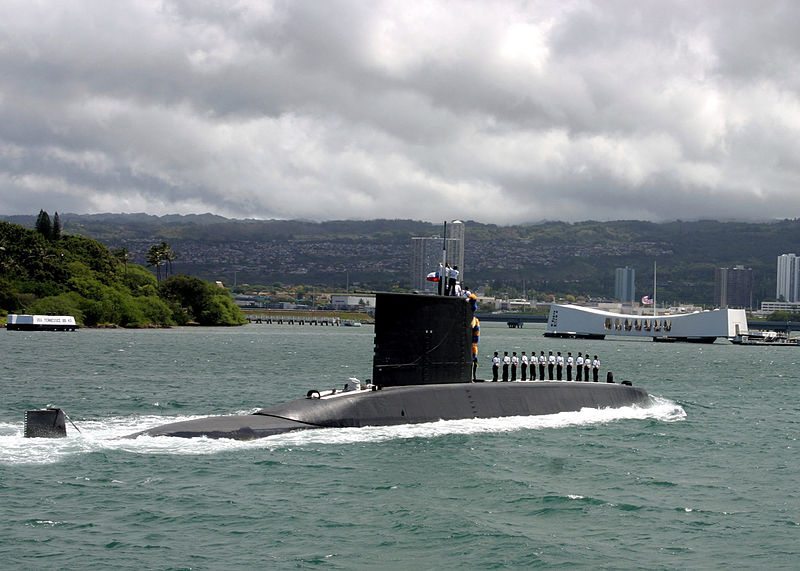The Chilean Submarine CS Carrera (SS 22) departed for Chile from Naval Base Point Loma in San Diego, Nov. 23, after taking part in the Diesel Electric Submarine Initiative (DESI) with Commander, U.S. 3rd Fleet.
DESI 2011, a three-month partnership, allows the U.S. and partnering navies to work together to train and test underwater warfare capabilities through engagement tactics, weapon systems tests and close encounter operations. This training helps the American and Chilean navies to train their crews and test capabilities while helping foster bilateral cooperation and further improve joint interoperability.
“This year we are improving this program with a new class of submarine that the Chilean Navy has, the Scorpene-class,” said Chilean Lt. German Espinoza, the liaison officer for Carrera. “We’ve been doing a lot of exercises that were once done with the older, 209-class submarines. Now that we have the Scorpene-class, we’ve been able to conduct exercises with helicopters, submarines, and strike-force units.”
Scorpene-class submarines are noted for their ability to transit quietly at low speeds, run on diesels at periscope depth, and the capability to operate exclusively on battery power for extended periods of time.
“In this year’s DESI, we were able to participate in several important exercises including CHILEMAR, a submarine rescue operation where the Carrera intentionally bottomed and a team from the U.S. Navy’s Deep Submergence Unit conducted a simulated submarine rescue,” said Lt. Cmdr. Daniel Hogan, operations officer for Commander, Submarine Squadron 11.
The situation simulated a submarine that was disabled and seeking assistance. Deep Submergence Unit and Carrera showcased the two nations’ ability to mate submarines and rescue vehicles successfully and safely rescue the distressed submarine’s crew.
“We get the best of both worlds in this case,” said Hogan. “We have our own goals with our submarines and we have shared goals. We learn from them and they learn from us. It strengthens our relationship.”
“This partnership is very important for us,” said Espinoza. “We are improving our relationship between countries, institutions, and especially crews. Now that we are here, we can understand the conditions in this area and improve relations for future operations.”
The DESI program increases partnerships and encourages cooperation between partner nations, furthering the core capabilities of the maritime strategy. Other participating DESI partners include Colombia, Brazil, and Peru.











